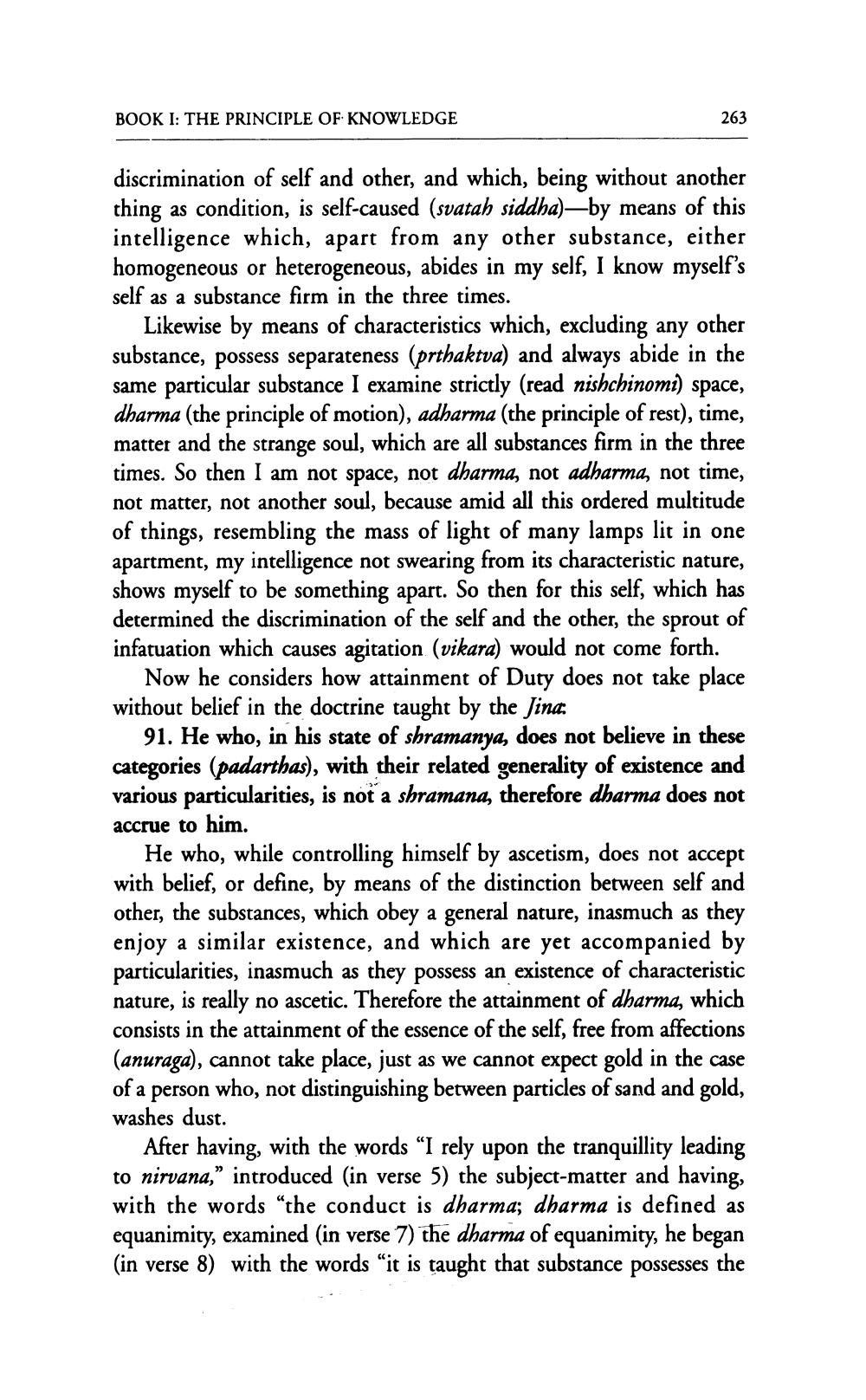________________
BOOK I: THE PRINCIPLE OF KNOWLEDGE
263
discrimination of self and other, and which, being without another thing as condition, is self-caused (svatah siddha)—by means of this intelligence which, apart from any other substance, either homogeneous or heterogeneous, abides in my self, I know myself's self as a substance firm in the three times.
Likewise by means of characteristics which, excluding any other substance, possess separateness (prthaktva) and always abide in the same particular substance I examine strictly (read nishchinomi) space, dharma (the principle of motion), adharma (the principle of rest), time, matter and the strange soul, which are all substances firm in the three times. So then I am not space, not dharma, not adharma, not time, not matter, not another soul, because amid all this ordered multitude of things, resembling the mass of light of many lamps lit in one apartment, my intelligence not swearing from its characteristic nature, shows myself to be something apart. So then for this self, which has determined the discrimination of the self and the other, the sprout of infatuation which causes agitation (vikara) would not come forth.
Now he considers how attainment of Duty does not take place without belief in the doctrine taught by the Jina
91. He who, in his state of shramanya, does not believe in these categories (padarthas), with their related generality of existence and various particularities, is not a shramana, therefore dharma does not accrue to him.
He who, while controlling himself by ascetism, does not accept with belief, or define, by means of the distinction between self and other, the substances, which obey a general nature, inasmuch as they enjoy a similar existence, and which are yet accompanied by particularities, inasmuch as they possess an existence of characteristic nature, is really no ascetic. Therefore the attainment of dharma, which consists in the attainment of the essence of the self, free from affections (anuraga), cannot take place, just as we cannot expect gold in the case of a person who, not distinguishing between particles of sand and gold, washes dust.
After having, with the words “I rely upon the tranquillity leading to nirvana," introduced (in verse 5) the subject matter and having, with the words "the conduct is dharma; dharma is defined as equanimity, examined (in verse 7) the dharma of equanimity, he began (in verse 8) with the words “it is taught that substance possesses the




